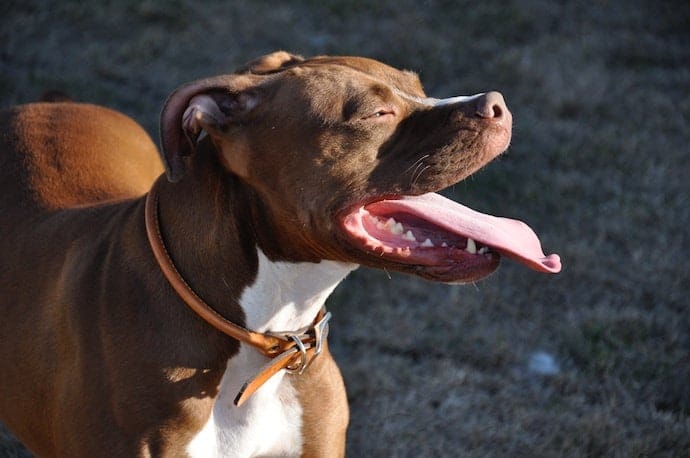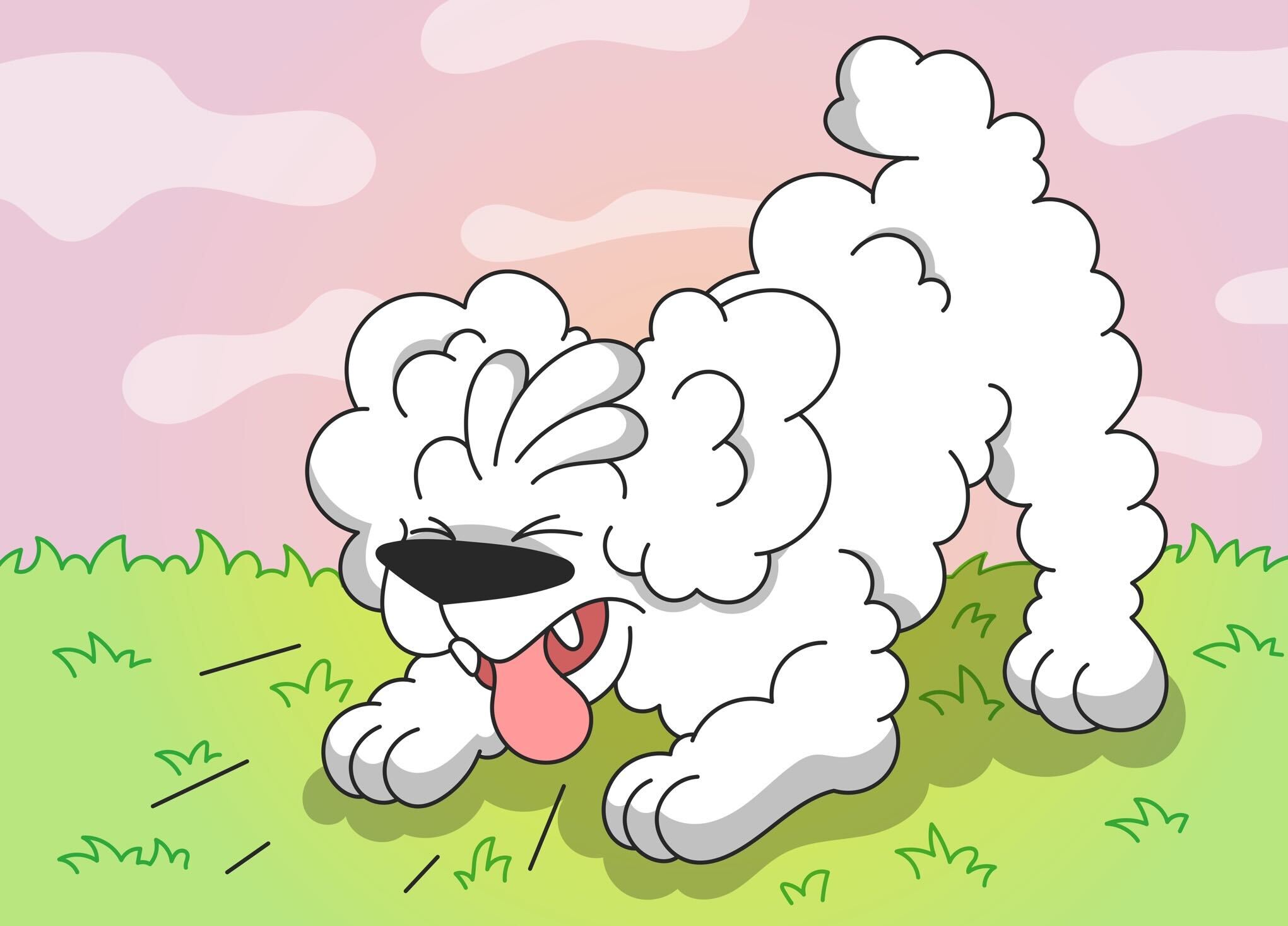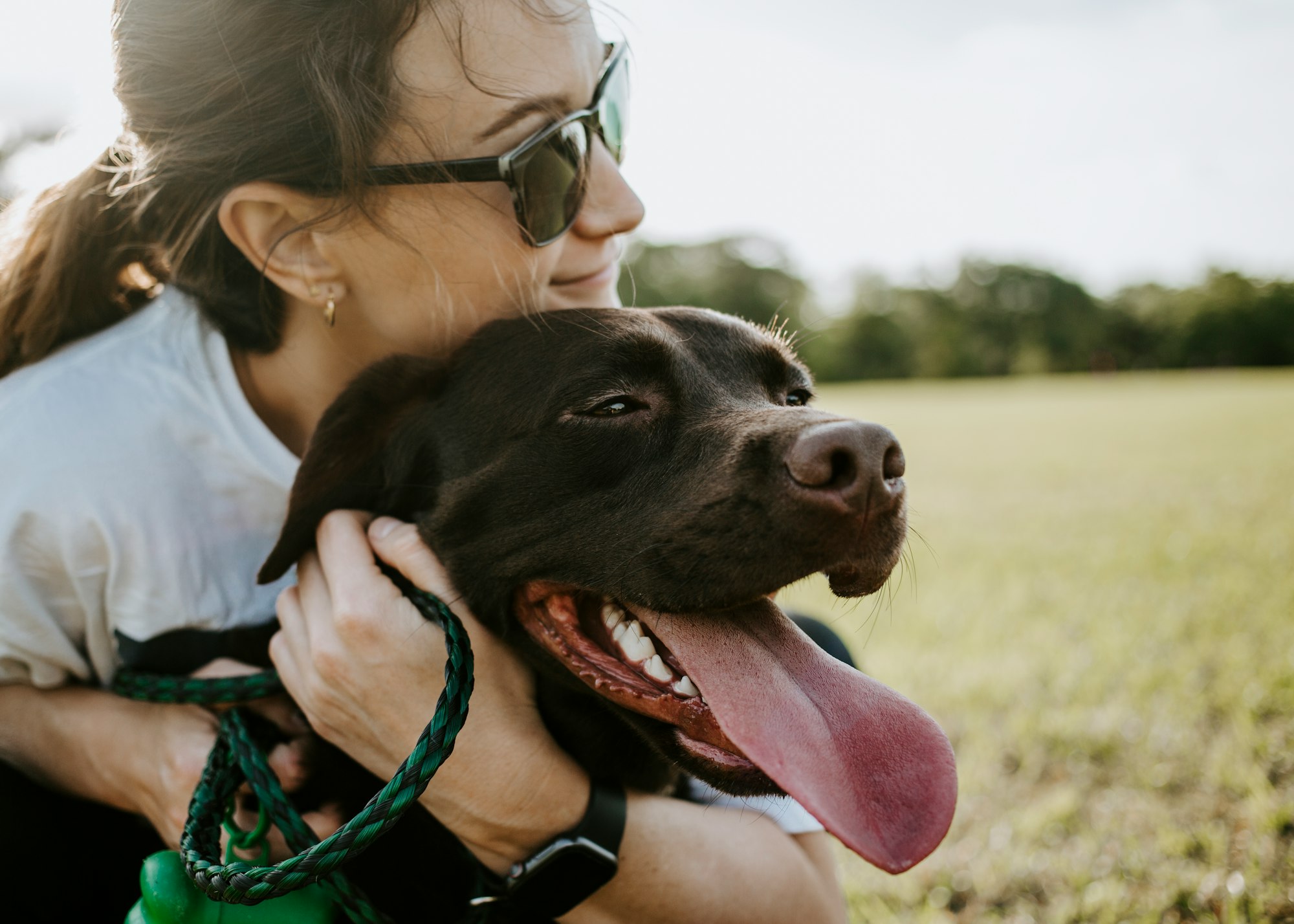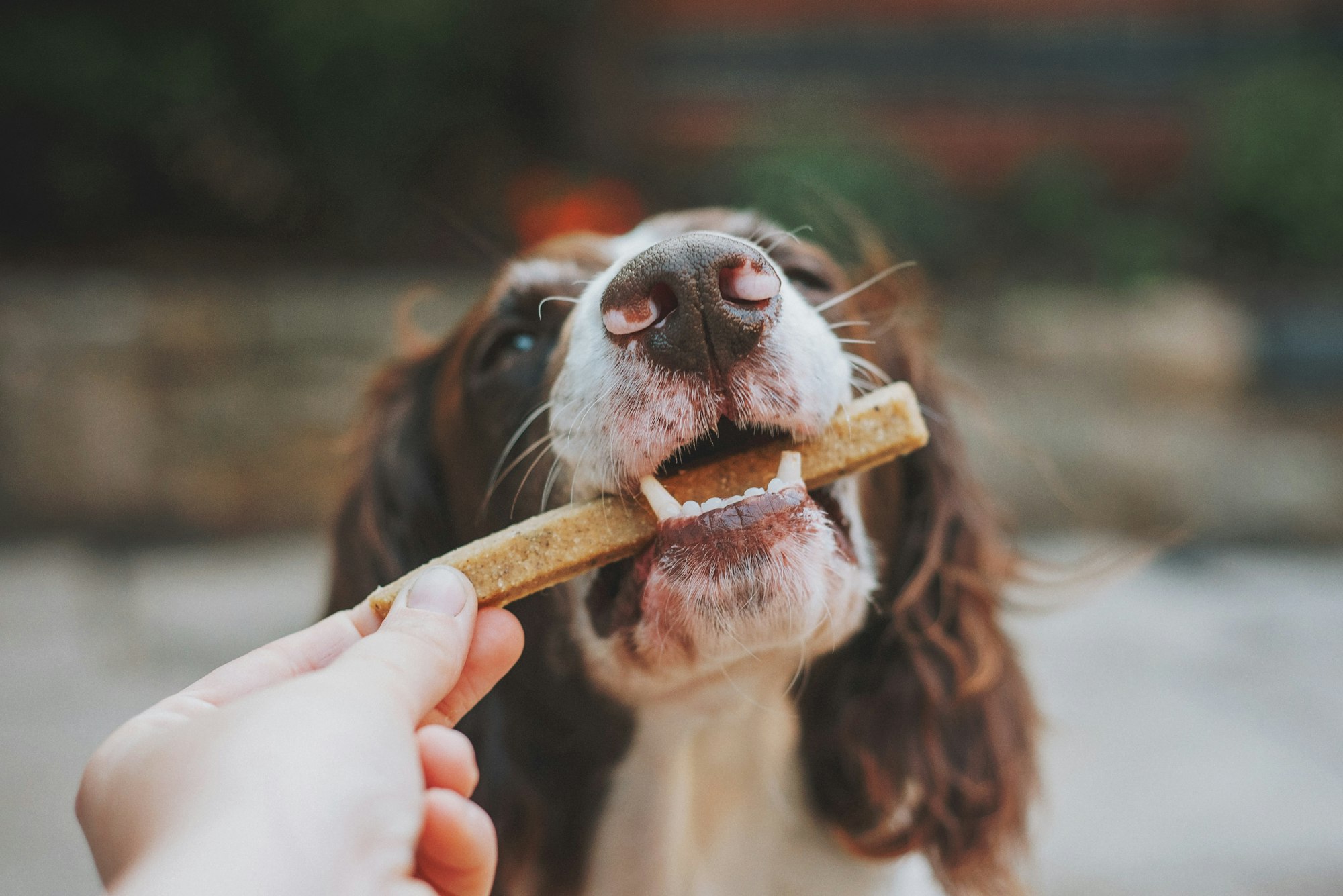Kennel cough is a highly infectious respiratory disease that affects dogs. It’s called “kennel cough” because it’s so contagious…one dog at a kennel with canine infectious tracheobronchitis can get every other dog at the kennel sick. It’s commonly found and transmitted in places dogs congregate like boarding facilities, at the groomer, doggy daycare, and even the dog park.

Who Gets Kennel Cough?
Kennel cough can affect almost any dog. Since it’s transmitted through both airborne droplets and/or physical contact, dogs of any age can catch it.
Puppies are particularly vulnerable to kennel cough because they have not yet built up immunity to the bacteria and viruses that cause it. Senior dogs are also at a higher risk for complications from kennel cough, as their immune systems are not as strong as they once were.
Dogs with underlying health conditions such as heart disease, respiratory disease, or diabetes are also more likely to develop serious complications from kennel cough. Dogs that are immunocompromised, whether from illness or medication, are also more likely to get and develop complications from kennel cough.
Dogs frequently socializing with other dogs are also at a higher risk, since they’re more likely to be exposed to kennel cough. If you take your dog to the park, to doggy daycare, or to board them while you’re on vacation, they’re more likely to catch the disease.
Signs of Kennel Cough
Kennel cough isn’t an aggressive disease in that dogs who have it don’t immediately become violently ill. It gradually gets worse, and its effects can build slowly over a period of several days or weeks before any symptoms become noticeable.
Kennel Cough Incubation Period
The incubation period for kennel cough is usually about 3-5 days but can be as long as 10 days. This means that a dog can be infected with the disease and not show any symptoms for up to 10 days.
Symptoms of Kennel Cough
How can you tell that your dog has kennel cough? A few of the most noticeable symptoms include:
- A strong, loud cough, sometimes described as a “honking” sound;
- Typical viral symptoms like a runny nose, sneezing, or red eyes;
- Lethargy or a general lack of energy;
- Loss of appetite;
- Low-grade fever.
Have you noticed some of these symptoms in your dog? Don’t hesitate to ask Online Vet. Maybe you're just too cautious, but otherwise, you’ll get expert advice on the further steps and treatment for your pet.
Treating Kennel Cough
If your pooch has any coughing symptoms, it’s important to speak to a veterinarian to rule out serious conditions like canine influenza or distemper. If your dog has kennel cough, your vet will likely diagnose them based solely on a visual and auditory assessment in-person.

Treatment is usually relatively mild and based on rest. Most vets recommend keeping your dog’s activity level low for at least a week or two while they regain their strength. Pet owners might be advised to switch to a harness rather than a collar while their dog’s trachea recovers from damage caused by the disease to make walks more comfortable.
In the most serious cases, vets may recommend nebulizers or vaporizers to help improve a dog’s oxygen levels and even to administer medication. Antibiotics may be prescribed in order to prevent a secondary infection.
Home Remedies for Kennel Cough
There are a number of natural remedies for kennel cough that can help to soothe and ease the symptoms of the disease. Honey is a natural expectorant and can help to loosen mucus and make it easier for your dog to cough up. Adding a teaspoon of honey to your pup’s food or water bowl each day can help to ease their cough.
Marshmallow root is another herb that can be helpful in treating kennel cough. It acts as an anti-inflammatory and helps to soothe the throat. You can add marshmallow root powder to your dog’s food or make a tea by steeping one teaspoon of the powder in hot water for five minutes. Let the tea cool before giving it to your dog.
Thyme is another herb with antimicrobial properties that can be used to treat kennel cough. Add thyme leaves to boiling water and let steep for five minutes before giving it to your dog as a tea. You can also add thyme essential oil to a diffuser and run it in your home if your dog is having trouble sleeping due to the cough.
Preventing Kennel Cough in Dogs
Since kennel cough is transmitted through contact, one way to prevent your dog from contracting it is to limit her exposure to other, possibly-infected dogs. That solution isn’t always viable, however, if you regularly take your dog to a boarding facility, to a groomer, or to a park where dogs are allowed.
Kennel Cough Vaccine
There are several vaccines available that can help prevent kennel cough. These vaccines are usually given as a nasal spray or an intramuscular injection.
Some vaccines require multiple doses for full protection, so be sure to follow your veterinarian’s recommendations. If your dog will be boarded or attending doggy daycare, ask if the facility requires proof of a kennel cough shot.
Vaccinating your dog against Bordetella is the absolute best way to keep them from getting infected since Bordetella is the most common cause of kennel cough. There are, however, a number of other infection agents responsible for developing kennel cough which is why it’s important to monitor your dog for any unusual changes in behavior.
Read more: Pet Vaccinations Guide for Cats & Dogs
Kennel Cough Vaccine Side Effects
Most dogs will have no reaction to the vaccine at all. Some may sneeze a bit or have a runny nose for a day or so after getting the vaccine. A very small number of dogs may have a more severe allergic reaction, which could include difficulty breathing, swelling of the face or hives.
These reactions are rare and usually happen within minutes to hours after getting the vaccine. If you think your dog is having a severe reaction to the vaccine, take them to the vet right away.
FAQ
What does kennel cough sound like?
The sound of kennel cough can vary depending on the severity of the illness, but typically it sounds like a harsh, dry cough. It can sound like your dog is hacking up a hairball or trying to clear their throat.
How long does kennel cough last?
The duration of tracheobronchitis in dogs can vary, but it is typically a relatively short-lived illness. Most dogs will recover within 2-3 weeks without any lasting effects.
However, some dogs may develop a more severe form of the disease that can last for several months and cause chronic coughing and other respiratory problems.
What is Bordetella in dogs? Is Bordetella kennel cough?
Bordetella is a bacterium that can cause kennel cough in dogs. Although most cases of kennel cough are caused by Bordetella, some are caused by other agents, including canine adenovirus, canine parainfluenza virus, and mycoplasma canis.
Is kennel cough contagious?
Yes, kennel cough is highly contagious. It is most commonly spread through contact with an infected animal or contaminated surfaces, so it is important to keep your pup away from other dogs that may be sick.
How long is kennel cough contagious for?
The disease is most contagious during the first week of illness, but can remain so for up to three weeks.
The length of time that kennel cough is contagious depends on the cause of the cough. If the cause is viruses, the cough will usually be contagious for 10 to 14 days. If the cause is bacteria, the cough can be contagious for up to 21 days. In very rare cases, some dogs may continue to shed the bacteria for up to six weeks.
How long is kennel cough contagious after starting antibiotics?
The time that kennel cough is contagious after starting antibiotics depends on the individual dog and the severity of their illness. In general, most dogs will start to feel better within a few days and will no longer be contagious after about two weeks.
Is kennel cough deadly? Can kennel cough kill a dog?
No, kennel cough is not deadly. It can, however, lead to pneumonia if left untreated, which can be deadly.
What to feed a dog with kennel cough?
There is no one-size-fits-all answer to this question, as the best way to feed a dog with kennel cough will vary depending on the severity of the illness and the dog's individual needs. However, in general, it is important to make sure that the dog has plenty of fresh water available at all times, and to feed them small, frequent meals of easy-to-digest food.
Can my dog get kennel cough even when vaccinated?
It is possible for a dog to get kennel cough after being vaccinated with Bordetella, but it is not common. The vaccine does not provide protection against other bacteria and viruses that cause kennel cough, so it is possible for vaccinated dogs to still contract the disease.
How do dogs get kennel cough at home?
Kennel cough is highly contagious and can easily be passed from one dog to another. If you have more than one pup, and at least one of them is frequently socializing with other dogs, all dogs are at risk. Another way is if a dog ingests something that contains the pathogen that causes the disease, such as contaminated food. Sharing toys with other dogs also poses a risk.
Was this article helpful?
Help us make our articles even better











